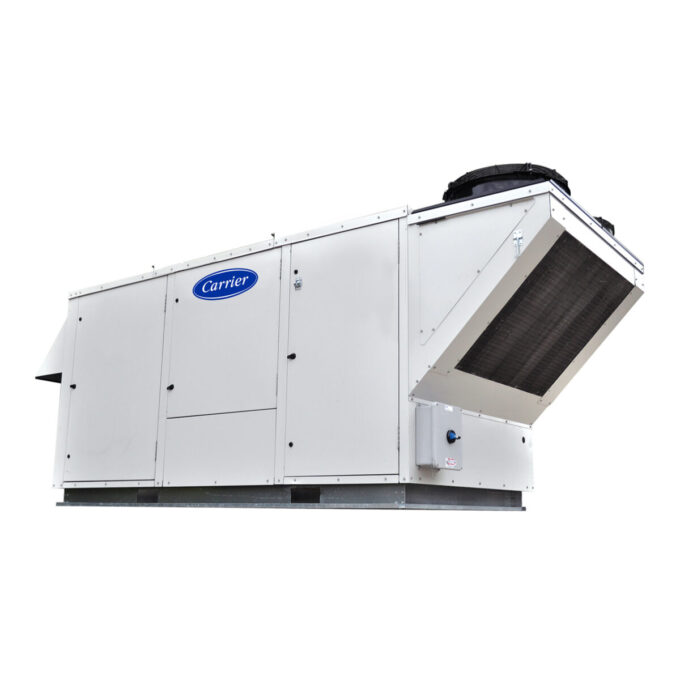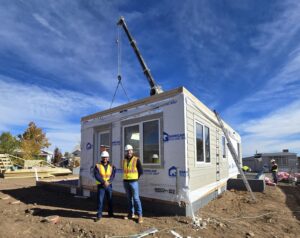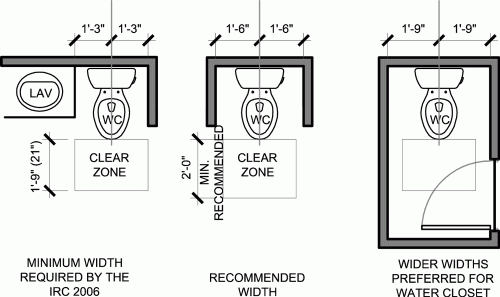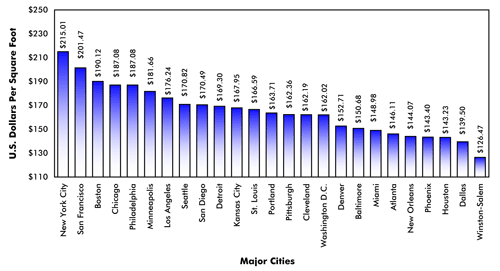Introduction
Dedicated Outdoor Air Systems (DOAS) are popular in commercial HVAC designs. They offer energy efficiency, indoor air quality, and performance benefits. Therefore, it’s crucial to have a licensed engineer design a DOAS system for optimal operation and compliance. DOAS Systems or DOAS Units are common terms despite the redundancy.
What is a Dedicated Outdoor Air System (DOAS)?
A Dedicated Outdoor Air Systems (DOAS) unit conditions ventilation air separately from air used for heating and cooling. Unlike traditional HVAC systems, DOAS treats 100% outdoor air and delivers it directly to occupied spaces. This allows precise control of ventilation and dehumidification, improving indoor air quality. DOAS units can have variable volume control and zone dampers for high-occupancy spaces. This enables demand control ventilation (DCV).

Key Benefits of Dedicated Outdoor Air Systems (DOAS):
- Enhanced Indoor Air Quality (IAQ):
- Better Ventilation: DOAS units provide continuous, controlled ventilation, ensuring a consistent supply of fresh air to the building’s occupants. The precise control of ventilation prevents some spaces from being overventilated while others are under-ventilated.
- Improved Dehumidification: By handling outdoor air separately, DOAS systems effectively remove humidity, preventing mold and maintaining comfort.
- Energy Efficiency:
- Reduced Load on HVAC Systems: DOAS units reduce the load on the primary HVAC system by handling ventilation and dehumidification separately, leading to more efficient operation.
- Energy Recovery: Furthermore, many DOAS units use energy or heat recovery ventilators (ERVs/HRVs), reclaiming energy from exhaust air.
- System Efficiency: Utilizing a DOAS system allows for the selection of more efficient HVAC systems such as GHSP, WSHP, VRF, and active or passive chilled beams.
- Comfort and Control:
- Stable Temperatures: DOAS systems allow for more precise temperature control in individual zones, enhancing occupant comfort.
- Flexible Design: The separation of ventilation and thermal loads allows for more flexible and scalable HVAC designs, accommodating various building types and sizes.
- Compliance and Sustainability:
- Regulatory Compliance: DOAS systems can help buildings meet or exceed ventilation and energy codes and standards, such as ASHRAE 62.1 for ventilation and ASHRAE 90.1 for energy efficiency.
- Green Building Certifications: Improved efficiency and IAQ help achieve LEED and WELL certifications.
Why Involve a Licensed Professional Engineer?
- Expertise and Experience:
- Complex Design: Designing a DOAS system involves complex calculations and an in-depth understanding of HVAC principles, which licensed professional engineers are trained to handle.
- Custom Solutions: Engineers can tailor the DOAS unit design to the specific needs and constraints of the building, ensuring optimal performance.
- Regulatory Compliance:
- Codes and Standards: Licensed engineers ensure DOAS designs comply with all relevant regulations.
- Precision and Accuracy:
- Load Calculations: Engineers provide accurate load and ventilation calculations for proper DOAS sizing.
- Integration & Controls: Engineers develop controls sequences and strategies to ensure DOAS systems integrate seamlessly with other building systems.
- Quality Assurance:
- Reliability and Safety: An engineer-designed DOAS ensures reliability and safety, reducing the risk of system failures and potential hazards.
- Documentation and Stamping: Professional engineers provide detailed documentation and apply a Professional Engineer (PE) stamp, required for permitting and essential for inspections and approvals.
Conclusion
In summary, a Dedicated Outdoor Air System (DOAS) offers many benefits, including improved air quality, energy efficiency, and comfort. Additionally, a licensed engineer’s expertise ensures DOAS units are correctly sized, integrated, and compliant. Contact EVstudio to see if a DOAS system fits your next project.










